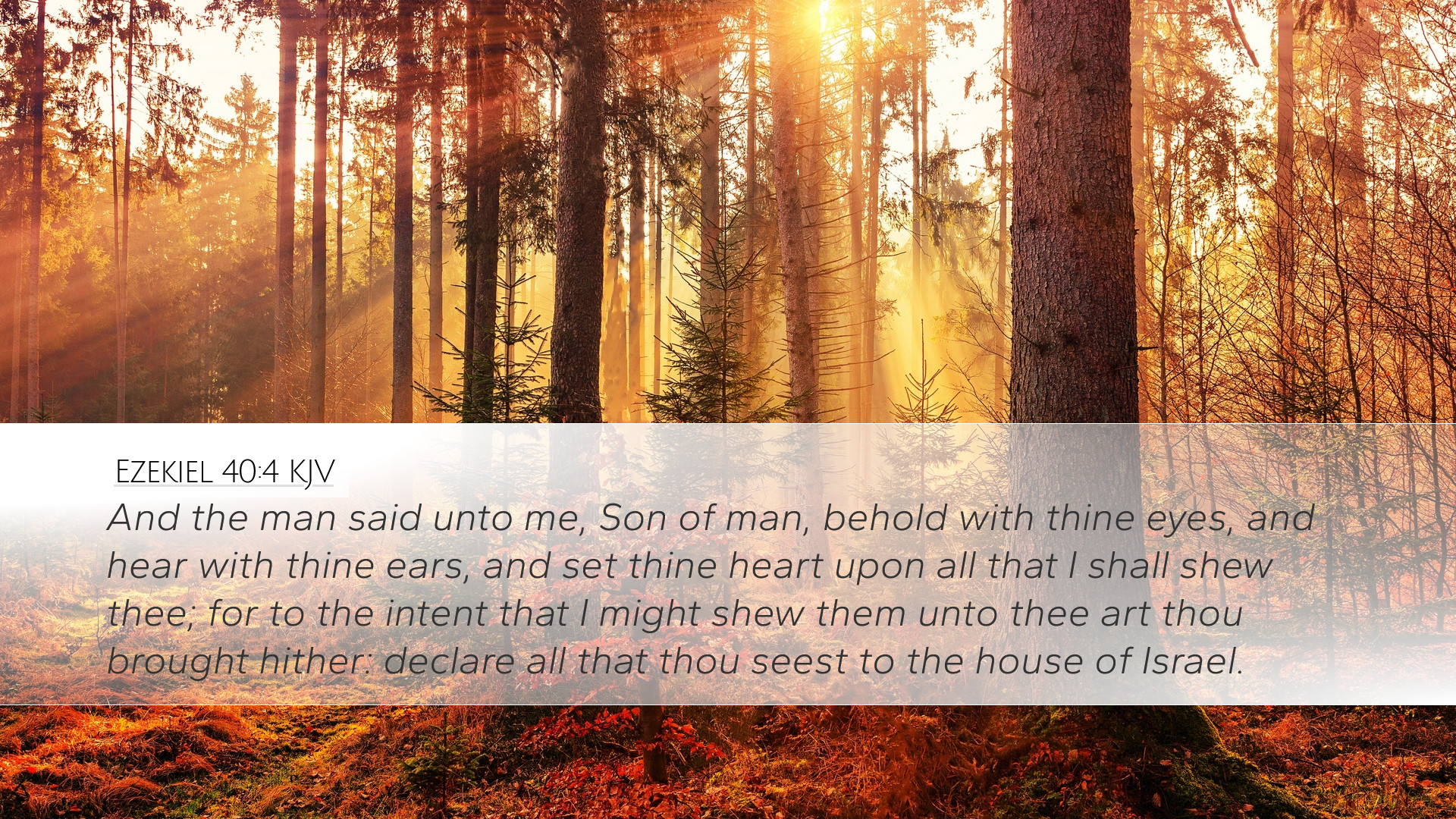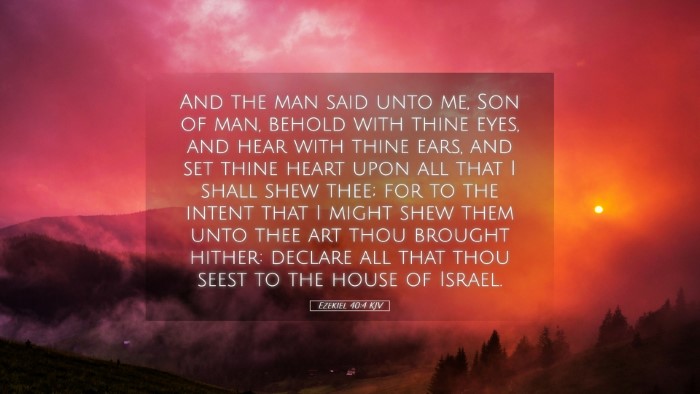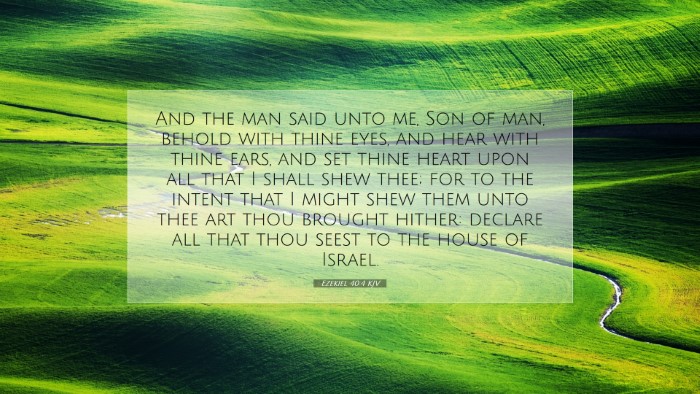Bible Commentary on Ezekiel 40:4
Ezekiel 40:4 (KJV): "And the man said unto me, Son of man, behold with thine eyes, and hear with thine ears, and set thy heart upon all that I shall show thee; for to the intent that I might show them unto thee art thou brought hither: declare all that thou seest to the house of Israel."
Introduction
The book of Ezekiel presents one of the most intricate prophecies in the Old Testament, particularly regarding the visions of the temple. Ezekiel 40 serves as the beginning of a detailed account of the vision of the new temple, a prophetic declaration that emphasizes both God's judgment and His restoration of Israel. This commentary delves into the significance of Ezekiel 40:4, focusing on the theme of revelation, the role of the prophet, and the implications for the Israelites.
The Call to Attention
In this verse, the phrase "behold with thine eyes, and hear with thine ears" underscores the necessity for Ezekiel to engage fully with the vision being presented. Matthew Henry remarks that this summons reflects God's desire for His people to observe with discernment and to listen with understanding. The act of seeing and hearing symbolizes a dual responsibility: the visual engagement with the truth and the auditory reception of divine instruction.
- Visual Engagement: The command to 'behold' implies a deep involvement with the message being conveyed. Ezekiel is not merely a passive observer; he is called to witness and internalize the vision.
- Aural Reception: The instruction to 'hear' emphasizes the importance of listening to God’s words carefully, suggesting a need for attentiveness to the divine communication that unfolds.
The Role of the Prophet
Albert Barnes highlights the significance of Ezekiel's role as a prophet tasked with relaying God’s message to Israel. The phrase "declare all that thou seest to the house of Israel" indicates that Ezekiel’s insights are not for his own benefit but for the edification and restoration of Israel. This emphasizes the prophetic office as one that requires faithfulness, clarity, and commitment to truth. Ezekiel's responsibility is profound, as he is to communicate the visions and insights with accuracy and diligence.
- Prophets as Messengers: Ezekiel serves as a mouthpiece for God, embodying the role of conveying the realities of divine instruction, warnings, and hopes of restoration.
- Accountability: The call to declare underscores the necessity of accountability in spiritual leadership, where the prophet must deliver the divine message without omission or alteration.
Theological Implications
Adam Clarke draws attention to the broader theological implications of this verse. The act of revealing the structures and rites associated with the temple signifies God's ongoing relationship with His people. The temple, in Ezekiel's vision, is emblematic of God's presence and glory among His people, showcasing not only divine transcendence but also immanence.
- The Significance of the Temple: The temple’s design and rituals encapsulate a covenant relationship, highlighting the themes of sanctity, worship, and God’s dwelling among humanity.
- Hope and Restoration: This vision of restoration conveys hope to Israel, promising that despite their current desolation, God’s presence will return, renewing their covenant relationship.
Practical Applications for Today’s Believers
The insights gleaned from Ezekiel 40:4 extend beyond historical context into practical applications for contemporary believers:
- Spiritual Vigilance: Believers are called to engage actively with God's Word, maintaining a posture of watchfulness and receptivity to divine truth.
- Commitment to Prophetic Voice: Today’s leaders, like Ezekiel, are tasked with the responsibility to communicate God’s truth effectively and faithfully within their communities.
- Hope in Restoration: The vision of the temple reminds believers of God’s promise for restoration and presence, which is pertinent to spiritual renewal and communal growth.
Conclusion
Ezekiel 40:4 serves as a pivotal verse that sets the stage for the rich theological and prophetic discourse found throughout this chapter. As we reflect on the urgent call to witness, engage, and proclaim, both past and present congregants can find encouragement and enlightenment. This prophetic vision invites all to anticipate the glorious restoration God has in store for His people, offering hope in times of spiritual desolation.


